With his first ever Irish TV show, Graham Norton is going back to his stand-up roots. Sort of. Donal O'Donoghue talks to the host of Last One Laughing about keeping a straight face.
"On paper, the idea of a roomful of people not laughing for six hours does not sound like fun," says Graham Norton of his latest show, Last One Laughing – or LOL as it is known from Madrid to Sydney.
"In fact, it sounds grim," he adds. "You’re thinking it’s just watching comedians die on their arse with the camera cutting to stony faces. But that’s not what it’s like. It’s a much sillier, jollier show. I also think that the Irish version keeps that silliness and lightness throughout, where some of the other versions have gone dark. It’s like the people have been in the room for a month when in fact it’s only been a few hours. And when it’s over they look like they’ll need some sort of therapy to be re-introduced to the real world."
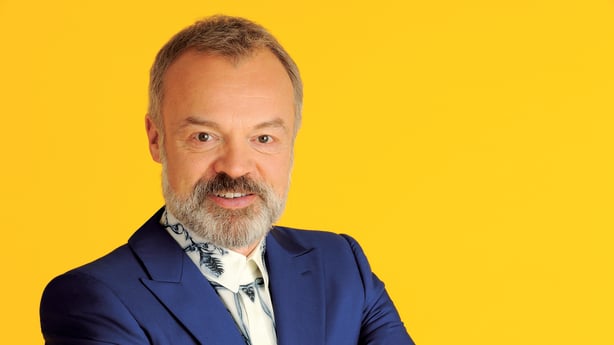
If anyone can bring the fun to an Irish version of the global TV franchise LOL, it's Norton, the one-time stand-up comic who is a star on both sides of the Atlantic for hosting the "most fun" (Matt Damon) chat show on the planet.
Of course, there are many other strings to Norton’s bow: best-selling novelist, award-wining wine and gin maker, radio broadcaster, veteran host of the BBC’s coverage of the Eurovision Song Contest and most recently, game-show host, as he heads up a reboot of Wheel of Fortune, returning to TV this week after 22 years. And then comes the Irish version of Last One Laughing.
On Zoom from his home in London, looking far younger than his 60 summers, Norton is a splash of can-do sunshine in a white t-shirt and open red shirt. Behind him is a shelf of books (not all his own) and eclectic bric-à-brac, including a cuddly toy pooch and one of his eight BAFTAs.

The Cork man is an inspired choice for Last One Laughing Ireland, the latest iteration of the hit show that originated in Japan and has since gone global. It's like an abridged variation of a Big Brother-style how, where comics vie for a prize of €50,000 for their chosen charity.
To scoop the booty, all they must do is not laugh during the six-hour duration of the show, even as they pull out all the stops to make the others crack a smile. In a nearby room, Norton is monitoring a bank of screens (the comics’ room is studded with hidden cameras) for any transgression.
If that happens, Norton hits a red button, marches into the comics’ room, and shows the offender a yellow card (or red if they have totally corpsed). As in football, a second yellow results in a red and the "eliminated" comic leaves the room and joins the host in his "observatory".
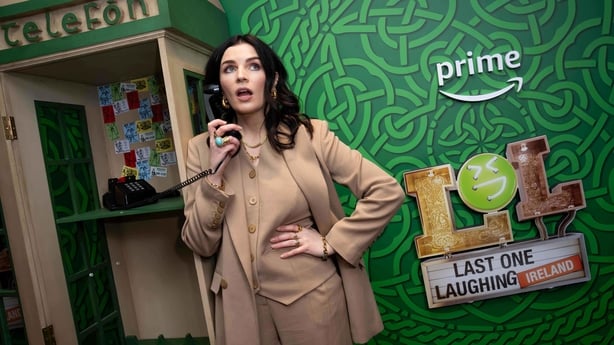
The competing comics include Amy Huberman, Emma Doran, Paul Tylak, Deirdre O’Kane, and Martin Angolo, who all adopt various strategies to win the Big Prize. Gag-man Jason Byrne attaches a giant proboscis to his face, lies on the floor and invites the others to throw hoops at his fake hooter while self-declared surrealist David McSavage spoons baked beans into his trouser pockets before eating them.
Tony Cantwell slips into a skin-tight green body suit, Aisling Bea decides to take up knitting and Amy Huberman reckons that a Method approach, where she employs a stony face to rival Buster Keaton, is her best hope. Others just move away from the source of danger, prompting a chuckling Norton to say that he’s never seen a comic having to chase their audience.
It looks like everyone’s having fun, not least the host, but Norton admits he had some trepidation in advance of making the show, having never worked in Ireland before and suspecting that it might descend into the darkness of some of the other versions. How does he think he would fare as a contestant?
"Because I’m quite lazy and uncompetitive, I would probably laugh very quickly and then sit in the other room for the day." Graham Norton, lazy and uncompetitive? Surely not. "If you asked me if I was ambitious, I’d say no but then I look at my life and think 'Apparently I am!’" He laughs.
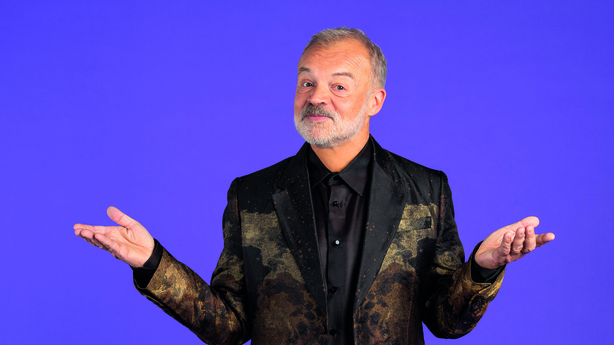
"But you’re right. I think one of the things that helps is that I have a business partner and he is ambitious for me. If I’m not working, the company is not doing anything. I imagine if I’d been left to my own devices, my career could have withered on the vine some time ago."
In the early days – before his TV star rose through Channel 4 and then stratospherically on the BBC – Norton was a very successful comic, even if he now says he was a better compère than stand-up. The skills and discipline learned in those early days are now part of his arsenal as an entertainer and interviewer.
Did he ever die on stage in those early stand-up days? "Oh God yes! In the beginning, I would die all the time. The thing about stand-up is that sometimes it doesn’t matter how good or bad your material is – and mine was never that good – there can be a weird alchemy in the room where the audience will just decide ‘No, none of this is funny and we’re not going to laugh’. When that happened to me, I would think ‘You’re right, I don’t know why anyone has laughed at this ever! You are the wisest, most discerning audience I’ve ever come across.’ Stand-up can be brutal, but I find watching a comedian die much harder than being the comedian who is dying."
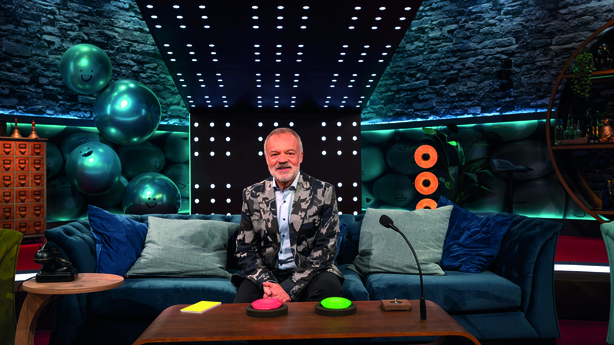
Norton is currently in the throes of writing his fifth novel, with the first draft due at the end of April. "I’m spending more time telling people that I’m enjoying writing it than actually writing it," he says. "The first third of the novel is set in Ireland and then there’s a bit in the UK and a bit in America. It’s the story of a life."
When I mention Colm Tóibín’s style of not writing anything down until it has fully taken shape in his head, he quips: "I think Colm Tóibín’s writing process is very different to mine." Like the all-singing, all-dancing Fr Noel Furlong (in two memorable episodes of Father Ted), Norton is a man blessed with restless energy and a performer unlikely to rest on his laurels. "Starting the writing just reminded me you’re not dead yet," he said recently of his late blooming as a novelist (his debut, Holding, was published when he was 52).
And he beats on. "I found turning 40 a struggle, but I got over that," he says of turning 60 last April. "With 60, there is no pretending. 60 is old. But now that I’m here, I feel OK about it. I believe that my body will tell me when it’s time to cool it mister.
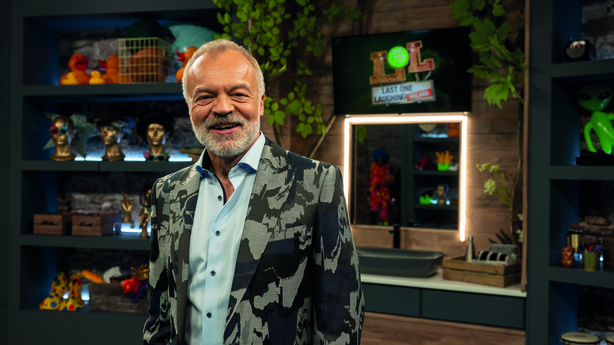
"To be honest, I thought that I would be cooling it by now, that I’d be doing less. I have cut some weeks off the chat show but then I’m doing this series on Amazon and I’m the new host of Wheel of Fortune on ITV and so on. I’ve surprised myself at a time when I thought I’d be sealing off rooms in the house and huddling down in the kitchen.
"Now I find myself saying yes more than I used to. Maybe I’m less cautious in a way, because I’m thinking f**k it, let’s do it."



